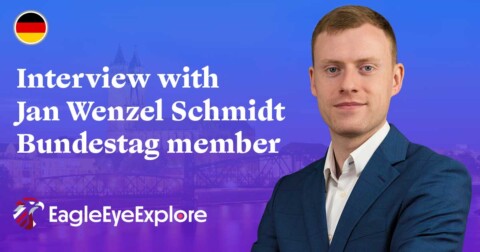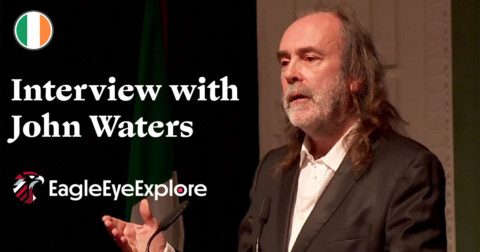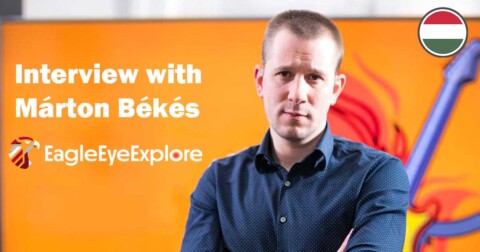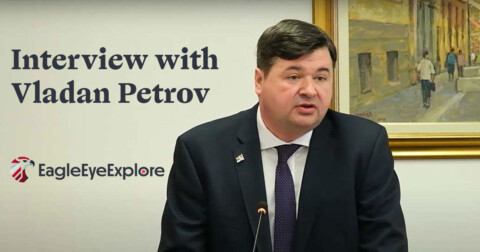Member of the European Parliament from Alternative for Germany (AfD), Thomas Frölich, is one of the party’s most dynamic young figures and a rising star of Europe’s anti-globalist right. A political scientist by training, former head of AfD’s press office in the European Parliament, and former vice president of the youth wing Young Alternative for Germany, Frölich has earned a reputation as a sharp critic of Brussels’ overreaching power and Berlin’s increasingly authoritarian course. In the European Parliament, he operates within the Europe of Sovereign Nations (ESN) group, focusing on defending national sovereignty, fighting censorship, and exposing what he calls the “globalist cartel” steering EU policy against the will of ordinary citizens.
In this interview, Frölich warns that the German government’s move to classify AfD as an “extremist organization” marks a dangerous escalation — an attempt to criminalize the country’s largest opposition party, which, according to the latest polls, is also its most popular. He describes this as a denial of voting rights for as many as 15 million citizens. Frölich explains how AfD plans to resist this form of repression politically and legally, reaffirms the party’s firm stance on ending mass immigration and restoring border control, and outlines its plan for economic recovery free from the EU’s green directives. He also addresses the issues of Ukraine, NATO, and the Middle East, advocating for a foreign policy grounded in realism and national interests. Finally, Frölich discusses AfD’s mission to hold Ursula von der Leyen accountable in Brussels and presents his vision of a Germany that, within the next five years, will once again reclaim its sovereignty and cultural self-confidence.
Does the recent move to label AfD as a “suspect extremist organization” represent a desperate maneuver by a collapsing leftist establishment to stay in power — and how do you plan to resist it legally and politically?
Simply put, it is an abuse of power and the use of state institutions to suppress the opposition. We are now also seeing the first bans preventing AfD candidates from running in regional elections. In other words, there’s an open flirtation with the Romanian model.
From a legal standpoint, our ability to defend ourselves is limited — we can only delay the consequences. Judicial positions are distributed according to political quotas, and the so-called Office for the Protection of the Constitution is, in practice, an instrument bound to execute government directives. Our goal is to become strong enough to make further repression not only illegal but politically impossible. At the moment, we stand at 25%. Once we surpass 30%, this repression will sooner or later collapse under its own weight.
How do you respond to judges appointed by the regime — such as the recently installed left-wing Constitutional Court judge who openly advocates banning opposition parties? Is Germany sliding toward open repression?
As I mentioned, we can confront such phenomena only through political means. Ultimately, the established political class must realize that it is completely delusional to try to ban a party that represents a quarter, and soon perhaps even a third, of the electorate.
To achieve that, we must win every single election taking place in Germany over the coming years — and we are working hard toward that goal. If the ruling caste were truly to embark on open repression and deny representation to roughly 15 million AfD voters, the entire country would enter a very dangerous and unpredictable phase. Rationally speaking, no one should want that.
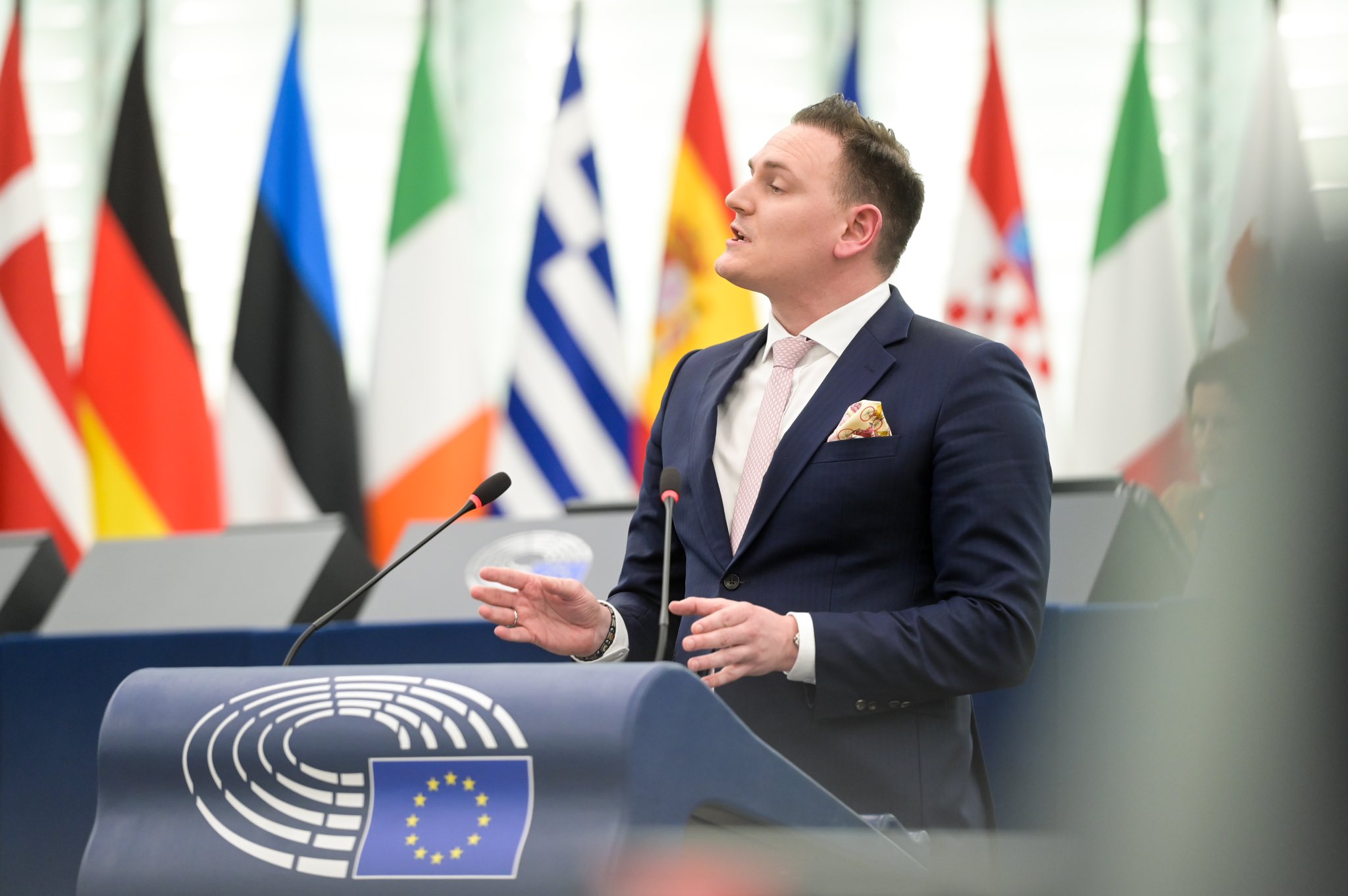
There are claims that parts of AfD are becoming “more moderate” on migration. Can you assure your voters that AfD remains firmly committed to halting mass immigration and securing Germany’s borders?
AfD will become neither more moderate nor more radical on this issue; the party has set a course that has remained consistent for many years and will continue as such. I can definitely assure you that an AfD government would make border control and a complete reversal of immigration policy its absolute priority. I don’t know anyone within our party who fundamentally sees this issue any differently.
With violent migrant riots becoming almost routine, is Germany approaching a point of social collapse, and what urgent measures would AfD take to restore order?
In Germany — thankfully — we are not yet in a situation of violent unrest. AfD in no way supports such riots, regardless of who instigates them. It must be emphasized, however, that migrants in Germany are not a homogeneous group, and the majority have no interest in disturbing social peace.
Still, there is a non-negligible minority that could become the breeding ground for future unrest — that is true. This becomes especially likely if, amid the ongoing economic crisis, distributable resources grow increasingly scarce.
That is precisely why it is crucial to end the exploitation of the welfare state and, by withdrawing from globalist projects such as the Green Deal, reopen space for growth and productivity in the German economy. In any case, further immigration into the welfare system is out of the question.
Regarding Ukraine — would a Germany led by AfD continue the failed policy of glorifying Zelensky, or would it advocate for an immediate ceasefire and negotiations to save European lives and interests?
Our position is precisely that — we call for the fastest possible ceasefire. Recent developments over the past months seem to confirm that we are right. If the European Union continues to “burn through” Ukraine to the last man in a war that cannot be won, the strategic position of the European community of states will deteriorate even further.
This is both a humanitarian issue and one of self-interest — the spiral of escalation must be stopped. Unfortunately, the political class within the EU is so detached from reality that, at least for now, we must fear the worst possible outcome.
Many right-wing representatives across Europe are rethinking their positions on the Middle East — what is AfD’s stance on the Israeli-Palestinian conflict and the recent escalations involving Iran? Does AfD have an official position on this issue?
Regarding the recent events in the Middle East, I can fully and unreservedly agree with the position of our federal spokesman, Tino Chrupalla, which also represents the party’s official line in accordance with its core program: no weapons deliveries to war zones — that means not to Israel either — and, of course, no support for further military actions against states in the region.
The destabilization of our neighboring region in the Middle East is disastrous, particularly in terms of potential new migration waves — the past twenty years have vividly proven this. The peoples of that region must be granted the right to their own homelands, just as the right of European peoples to their homelands must once again be respected.
Moreover, during the war in Gaza, very serious ethical questions are emerging — that’s a topic in itself. I am not sure whether there is already widespread rethinking of this issue within the European right, as you mentioned, but it is certainly right not to turn a blind eye to the fact that the West is currently losing all credibility on the global stage due to the situation in Gaza. The long-term cost of this could be very high.
Joe Biden’s foreign policy has destabilized Europe and the world — do you see Donald Trump as a potential force of reason and peace in global affairs, particularly from the German perspective?
Trump has so far introduced a range of different measures — some of which, from our perspective, are positive, and others negative. The trade war against the European Union must, of course, be assessed negatively; however, the European Commission has also failed completely as a representative of the interests of European nations.
Whether Trump will ultimately bring new momentum to conflict resolution remains to be seen. For now, it can at least be said that there has been some movement in certain areas — and that, in itself, is already quite positive.
Would an AfD-led government end Germany’s submissive military dependence on NATO and seek a more independent European or national security model — perhaps even exiting the Alliance?
That is not a simple question. Fundamentally, our goal is to build a strong European security structure that would not depend on the United States. This would certainly begin within NATO, and even reaching that point will be a long and complex process. For that reason, at present no one is seriously considering leaving NATO.
Before European NATO members begin to spend enormous sums without a clear plan or justification, thereby creating enemies around the world, we first need to take stock of the situation. As Germans and as Europeans we must analyze our own interests — which do not always coincide with those of the United States — and formulate a comprehensive strategy in the fields of economic, technological, and military sovereignty. That is a project for the coming decades.
Germany’s economy is collapsing under the burden of green ideology and the EU’s anti-industrial diktat — how would AfD reverse deindustrialization and restore prosperity to German workers and manufacturers?
As an urgent measure, high energy prices and the horrific bureaucratic costs must be reduced. In the medium term, the welfare state must return to its core tasks, and the tax and contribution burden — especially on industry and small and medium enterprises — must be reduced.
In the long run, we need a smart industrial, research, and education policy that will enable Germany to offer products on the world market that preserve its status as a high-wage country. Germany cannot survive as an economy based solely on services.
None of these measures can be implemented while we remain shackled to globalist political projects — therefore we must free ourselves from each of those constraints.

The recent proposal to table a vote of no confidence in Ursula von der Leyen shows growing opposition to her corruption and authoritarianism — why did the establishment dismiss these accusations and how will AfD continue the fight in Brussels?
Our parliamentary group in the European Parliament and we as a party are probably the fiercest opponents of Mrs. von der Leyen — there is no doubt about that. We use every opportunity, inside and outside parliament, to expose and publicize all her political and financial machinations. Crucially, we must reach the German public — because ultimately that is something only we can do.
It is not surprising that the establishment has no interest in clarifying anything. There are far too many actors inside the Brussels structures — and in the supporting apparatus of institutions, interest groups, and the media — who are too deeply entangled in that swamp to ever be able to drain it.
Where do you see Germany in five years — still shackled by globalist tyranny or on the path to national revival under AfD leadership? And what is your message to those who have lost faith in their country’s future?
Five years is a short period; therefore the word “vision” may be somewhat pretentious, but allow me to sketch it briefly: it should be a country that by then has managed to halt decline in all areas and begun the process of reconnecting — economically, technologically, and culturally — with its high ambitions and traditions. That must be our goal.
It is unrealistic to expect that in such a short time we can entirely cast off all chains of the globalist agenda. For now, we will probably still be in opposition. But every day we work to lay the foundations so that, should we come to power, we will be as well prepared as possible and not waste a moment.

